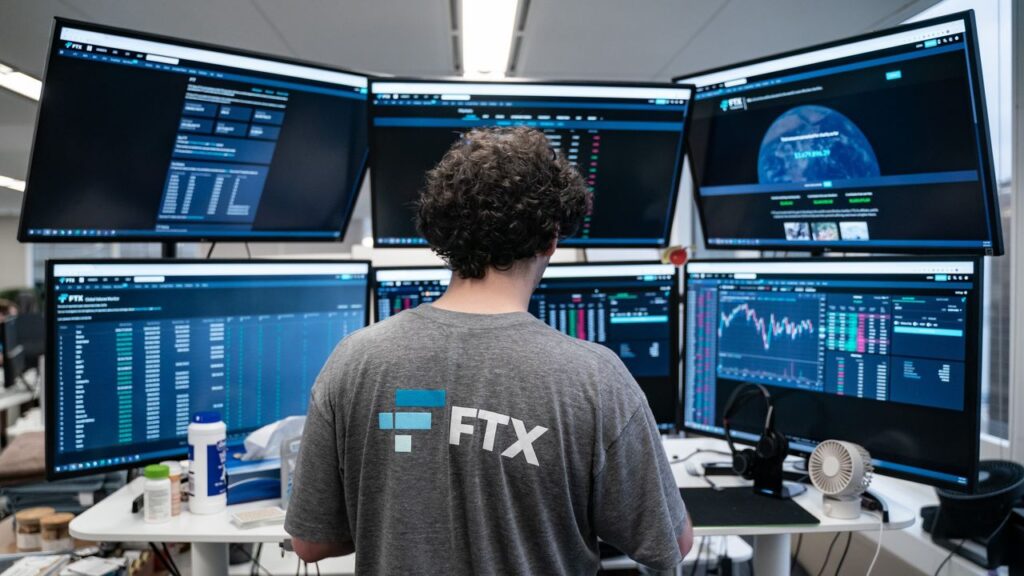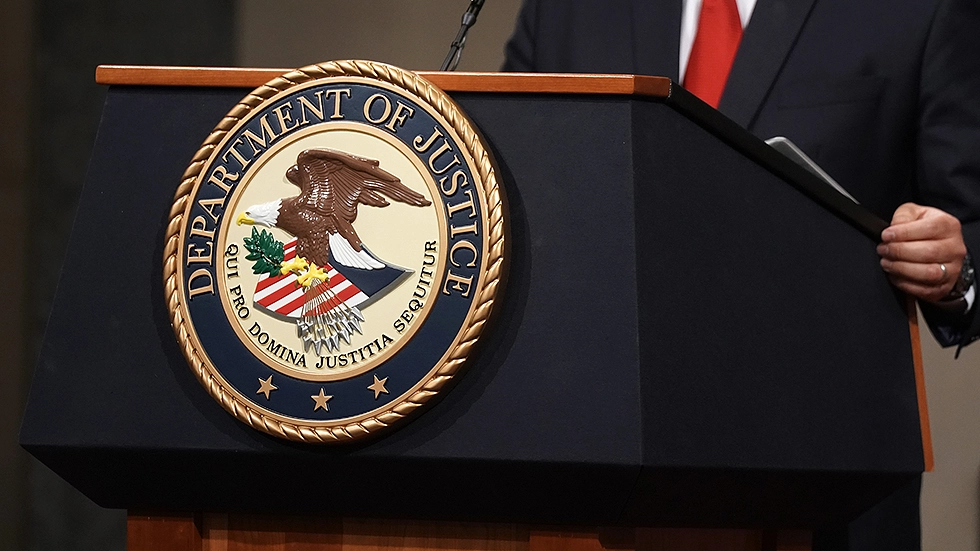ProShares, a prominent issuer of futures-based Bitcoin exchange-traded funds (ETFs), remains unfazed by potential threats associated with the introduction of spot Bitcoin ETFs in the United States, according to a senior executive.
Simeon Hyman, ProShares’ global investment strategist, expressed that the company perceives advantages in the launch of spot Bitcoin ETFs for its futures products, both from operational and commercial perspectives.
In an interview with Cointelegraph on February 2, Hyman noted that their flagship Bitcoin futures ETF, the ProShares Bitcoin Strategy ETF (BITO), has experienced “very efficient” trading volumes since the arrival of spot Bitcoin ETFs.
Hyman conveyed the company’s satisfaction with BITO’s commercial impact, revealing that it currently trades with a mere two basis points deviation (2/100th of a percent) from its underlying value.
In contrast, spot ETFs have displayed an average premium or discount of 36 basis points.
Beyond the commercial realm, ProShares anticipates operational benefits stemming from the increased adoption driven by spot Bitcoin ETFs.
Hyman explained that the presence of spot ETFs is enhancing the futures market, which was already well-functioning and regulated.
The increased activity around Bitcoin is seen as a positive development.
READ MORE: FTX Bankruptcy Raises Questions Over Legal Team’s Lucrative Fees
These statements align with BITO’s recent trading dynamics, except for an abnormal spike in trading volume on January 11, coinciding with the launch of spot Bitcoin ETFs.
On that day, BITO’s trading volumes soared to nearly $2 billion, while its typical volumes ranged between $300 million and $600 million.
However, since the introduction of spot BTC ETFs, BITO has returned to its usual trading figures, reaching as low as $180 million on February 2. Prior to the spot ETFs’ launch, it traded within a similar range, as indicated by Yahoo Finance data.
It is worth noting that the news arrived as major spot Bitcoin ETFs like BlackRock’s iShares Bitcoin Trust (IBIT) and the Grayscale Bitcoin Trust ETF (GBTC) temporarily surpassed BITO in trading volumes, marking a significant shift.
BITO had previously held the title of the world’s largest Bitcoin ETF in terms of trading volumes.
Launched in October 2021, BITO stands as the United States’ first substantial futures Bitcoin ETF.
In contrast to spot Bitcoin ETFs, which track actual Bitcoin holdings, ProShares’ BITO uses futures contracts as its underlying asset.
Despite the changing landscape, ProShares remains optimistic about the future of its futures-based Bitcoin ETF amid the growing interest in the cryptocurrency market.
Vast Bank, which touted itself as the pioneer among U.S. banking institutions in allowing customers to seamlessly manage cryptocurrencies alongside their traditional checking accounts, has made a surprising move by shutting down its mobile crypto banking app and expressing its intention to exit the cryptocurrency industry.
According to an FAQ published on the bank’s website, Vast Bank has decided to disable and remove the Vast Crypto Mobile Banking application from both Google and Apple platforms as of Wednesday, January 31st, 2024.
Consequently, all Vast Crypto Mobile Banking accounts, including any digital assets held in custody, will undergo liquidation and closure, with remaining crypto holdings refunded to account holders.
Vast Bank ventured into the crypto sector back in 2019, forming partnerships with industry giants like Coinbase and SAP to launch their crypto-friendly mobile banking app in 2021.
However, the bank faced regulatory challenges, receiving a consent order from the Office of the Comptroller of the Currency (OCC) in late 2023.
The OCC’s order alleged that Vast Bank had engaged in “unsafe or unsound practices” related to risk management and control, with a particular focus on the institution’s involvement in cryptocurrencies.
READ MORE: Artists Ryder Ripps and Jeremy Cahen Ordered to Pay $9 Million in BAYC NFT Lawsuit
Shortly after the issuance of the OCC order, Vast Bank released a statement in November 2023, indicating a shift in its strategic direction.
The bank expressed its intention to refocus on “traditional banking” and pivot away from the crypto space. Vast Bank highlighted the ever-evolving and unclear regulatory landscape in digital banking, coupled with macroeconomic challenges, as factors contributing to its decision to withdraw from the crypto industry.
While Vast Bank did not explicitly mention regulatory uncertainty as the reason for its exit, it is widely acknowledged that the broader U.S. banking industry has exhibited hesitancy toward fully embracing cryptocurrencies due to regulatory ambiguity.
Some observers have pointed out the opposing stance of pro-crypto government officials who have voiced their concerns over the Securities and Exchange Commission’s inconsistent approach to cryptocurrency regulation.
In light of these developments, Vast Bank’s decision to exit the cryptocurrency space marks a notable shift in the landscape of traditional banking institutions’ engagement with digital assets, emphasizing the ongoing challenges posed by regulatory frameworks in the United States.
On February 5th, Bitcoin experienced a surge, surpassing the $43,500 mark, coinciding with the opening of Wall Street, as U.S. markets reacted to tumultuous events in the Chinese stock market.
Bitstamp reported local highs of $43,515 for Bitcoin, marking a new record for the cryptocurrency’s price in February.
This price rally was ignited by the abrupt drop of 8% in China’s CSI 1000 index, prompting Chinese authorities to enforce stricter controls on short selling.
Concerns about a potential recession in China began to circulate, with observations of a “disconnect” between large and small-cap stocks, causing China’s market to lose an astounding $7 trillion in value over the past three years.
Bitcoin’s volatility was further fueled by a significant increase in open interest, reaching $775 million, as reported by J. A. Maartunn, a contributor to the on-chain analytics platform CryptoQuant.
Despite the volatile market conditions, outflows from the Grayscale Bitcoin Trust (GBTC) remained relatively low, with approximately 2,600 BTC leaving the trust, continuing a downward trend seen in previous days.
Keith Alan, co-founder of the trading tool Material Indicators, analyzed the order book composition and issued a cautionary note regarding Bitcoin’s price.
He highlighted that there was limited liquidity immediately below the current spot price, making a drop to $42,000 appear quite plausible.
Furthermore, Alan noted that liquidity was more abundant around the $25,000 range, indicating growing sentiment for a potential price dip.
READ MORE: Artists Ryder Ripps and Jeremy Cahen Ordered to Pay $9 Million in BAYC NFT Lawsuit
He emphasized the relationship between liquidity and sentiment, explaining that increased liquidity often reflects prevailing market sentiment.
Alan also pointed out that the ladder of ask liquidity above the current spot price was gradually decreasing, suggesting that a rapid ascent to $45,000 or higher in the short term was unlikely.
In summary, Bitcoin’s price surged to over $43,500 as a response to the turmoil in the Chinese stock market.
This spike was accompanied by increased open interest and relatively low outflows from the Grayscale Bitcoin Trust.
However, caution was advised due to limited liquidity below the current price, with the potential for a dip to $42,000.
Overall, market sentiment remained uncertain, with the possibility of further price fluctuations in the near future.
Genesis Global Capital, a crypto lending firm facing bankruptcy, has sought approval from the United States Bankruptcy Court to liquidate approximately $1.6 billion worth of shares in the Grayscale Bitcoin Trust (GBTC), Grayscale Ethereum Trust (ETHE), and Grayscale Ethereum Classic Trust (ETCG).
In a recent court filing, Genesis emphasized the urgency of this request, highlighting the need to obtain approval to sell these trust assets to preempt any potential fluctuations in the prices of the underlying assets, including Bitcoin (BTC), Ether (ETH), and Ethereum Classic.
Their primary objective is to maximize the available funds for distribution to creditors.
Genesis’s portfolio is predominantly composed of GBTC shares, accounting for approximately 87% of their total holdings, valued at $1.38 billion.
Meanwhile, ETHE makes up around 10% of their holdings, approximately $169 million, and ETHCG represents about 3%, totaling $38 million.
The filing reveals that as of September 2023, GBTC held about 3.2% of all circulating Bitcoin, while in December 2022, ETHE had roughly 2.5% of all circulating Ethereum, and ETCG held approximately 8.5% of all circulating Ethereum Classic.
READ MORE: FTX Seeks Approval to Sell $175 Million Claim Against Genesis Global Capital in Bankruptcy Case
Genesis noted that the recent conversion of GBTC into a spot Bitcoin exchange-traded fund (ETF) allowed for the redemption of shares in cash through its redemption program, following approval from the United States Securities and Exchange Commission on January 10.
However, the Ethereum trusts (ETHE and ETCG) do not have a redemption program, requiring written consent from the sponsor to sell or dispose of the shares. Genesis has requested the waiver of this written approval.
Recent reports have shown a significant sell-off of GBTC shares since its conversion.
On January 22, FTX, a bankrupt cryptocurrency exchange, sold 22 million GBTC shares valued at nearly $1 billion, fully liquidating its holdings.
In contrast, Genesis has expressed its intention to maximize the proceeds from the sale of these crypto assets.
The filing also emphasizes the commitment of both Genesis and Gemini (the sponsor) to make reasonable efforts to maximize the market price of any Trust Assets or Initial GBTC Shares and the proceeds received from their sale or redemption.
Artists Ryder Ripps and Jeremy Cahen find themselves in a legal quagmire as their counterclaims against Bored Ape Yacht Club (BAYC) creator Yuga Labs have been dismissed by the court.
The unfavorable order handed down requires the pair to pay a hefty sum of $9 million in disgorgement and other statutory damages.
The legal battle stems from their actions in May 2022 when Ripps and Cahen unveiled the Ryder Ripps BAYC (RR/BAYC) collection, which bore striking resemblance to the renowned BAYC brand.
In April 2023, a judge ruled in favor of Yuga Labs, asserting that Ripps and Cahen had violated copyright laws by creating unauthorized versions of BAYC nonfungible tokens (NFTs).
This initial ruling compelled the duo to pay $1.57 million in damages to Yuga Labs, in addition to covering the legal fees, seemingly concluding the lawsuit.
However, the latest court filing on February 2nd brought a new twist to the legal saga.
Ripps and Cahen’s counterclaims against the charges were dismissed, and they were now slapped with a staggering $9 million penalty, encompassing lawyer fees, expert witness fees, and disgorgement.
The court further mandated them to dispose of any RR/BAYC NFTs they possessed, either by destroying (“burning”) them or providing them to Yuga Labs for disposal.
In response to the unfavorable ruling, Cahen, known as Pauly to his 174,100 followers on X, announced their intention to appeal the decision in the Ninth Circuit Court of California.
READ MORE: Bitcoin Stumbles as Strong U.S. Job Data Sparks Rate Hike Fears
Ripps and Cahen had initially filed counterclaims against Yuga Labs, accusing them of intentional infliction of emotional distress, negligent infliction of emotional distress, and seeking a declaratory judgment of no defamation.
However, the judge ruled against Yuga Labs’ first and third causes of action, which alleged false designation of origin and cybersquatting (the practice of buying domain names to profit from a trademark), while imposing the substantial multimillion-dollar penalty.
Additionally, the court ordered Ripps and Cahen to surrender all social media accounts associated with RR/BAYC NFTs and the smart contract used in their creation.
The filing emphasized the need for them to destroy any infringing materials, including NFTs, articles, documents, software, promotional items, or advertisements linked to the BAYC Mark, under their possession or control.
As the legal battle continues, the artists find themselves facing not only a significant financial burden but also the prospect of relinquishing their creations in the NFT world.
Former United States Securities and Exchange Commission (SEC) official, John Reed Stark, has raised concerns about the FTX restructuring plan, suggesting that it may serve as an opportunity for the exchange’s legal team to profit from the bankruptcy process.
Stark took to a social media platform to express his skepticism, humorously suggesting that all FTX customers should receive a sarcastic “Thank You” note from the exchange’s defunct legal team for the substantial profits they have reportedly made during the bankruptcy proceedings.
He even quipped that each member of the legal team might soon be able to afford a new beach house in 2024.
During a January 31st hearing held in the U.S. Bankruptcy Court for the District of Delaware, FTX’s lawyer, Andy Dietderich of Sullivan & Cromwell, clarified that despite extensive efforts, there were no intentions to relaunch FTX under the Chapter 11 bankruptcy framework, known as FTX 2.0.
Stark had previously expressed doubts about the success of the Chapter 11 FTX reorganization plan, comparing the challenge of restructuring FTX to trying to reorganize a combination of notorious entities such as “Murder Incorporated, The Cali Drug Cartel, and Madoff Investment Advisory Services.”
Legal fees and expenses incurred during the bankruptcy proceedings have drawn attention. Lawyers and the restructuring team managing FTX billed over $200 million between November 2022 and June 2023.
These fees were reviewed and deemed reasonable by the court-appointed fee examiner, Katherine Stadler, who described them as “not wholly unreasonable at the moment” in a report filed on June 20, 2023.
READ MORE: European Union Achieves Landmark Approval of AI Regulation with EU’s AI Act
However, during the quarter ending October 31, 2023, FTX incurred substantial costs, spending approximately $53,000 per hour on legal and advisory fees, according to recent compensation filings.
Documents from December 5 to December 16, 2023, revealed that the bankruptcy legal team billed at least $118.1 million from August 1 to October 31, 2023, averaging $1.3 million per day or $53,300 per hour over the 92-day period.
In a further development, on February 1, FTX submitted a request in a Delaware court to sell its $175 million claim against the bankrupt Genesis Global Capital, with Alameda Research owning the claim.
If approved, FTX would have the flexibility to sell the claim in its entirety or in parts, allowing for optimal timing based on market conditions.
FTX’s troubles began in November 2022 when irregularities were uncovered in its accounts, ultimately leading to its collapse.
Genesis Global Capital had $175 million tied up in FTX accounts at the time, but it asserted that these funds did not impact its market-making activities.
According to a recent analysis by DecenTrader, Bitcoin is expected to reach new all-time highs in 2024, but not without some challenges along the way.
The analysis, released on February 2nd, suggests that Bitcoin’s price behavior will follow a typical pattern during a “halving year.”
DecenTrader predicts that Bitcoin will experience about a month of sideways price movement before the market reacts to the upcoming block subsidy halving.
CEO and co-founder Filbfilb explains that investors should anticipate a surge in buying activity approximately two months before the halving, which is currently estimated to occur on April 18.
However, following this buying surge, there may be another “sell the news event,” similar to what happened when spot Bitcoin exchange-traded funds (ETFs) were launched in January.
Filbfilb points out that there are roughly 75 days remaining until the Bitcoin halving, suggesting that buying interest is likely to start no later than six weeks before the event, or around the second week of March.
This anticipation among speculators could drive Bitcoin’s price to its current two-year high of $49,000 before a sell-off resembling the ETF launch occurs.
Nevertheless, the path ahead appears promising, as price discovery is expected to happen before the end of 2024, similar to the outcome of Bitcoin’s last halving year in 2020.
READ MORE: European Union Achieves Landmark Approval of AI Regulation with EU’s AI Act
Filbfilb advises investors to be aware that Bitcoin tends to front-run the “sell-the-news” phenomenon associated with halving events.
Despite the optimism surrounding Bitcoin’s potential for a new all-time high, the first quarter of 2024 may be challenging for traders.
In addition to Bitcoin-specific factors, macroeconomic and geopolitical uncertainties could contribute to wider risk-asset turbulence.
Concerns include the weakness of the United States banking system, which former BitMEX CEO Arthur Hayes expects to come to a head in March.
Some analysts even believe that Bitcoin may not reach a new all-time high until the end of 2025.
Filbfilb remains cautious and warns against excessive optimism, emphasizing that previous market cycles in Bitcoin have followed a consistent pattern driven by investor emotions.
As Bitcoin traded just under $43,000 into the February 4th weekly close, the cryptocurrency market’s trajectory remains uncertain, with various factors influencing its future performance.
Bankrupt cryptocurrency exchange FTX has made a request to the United States Bankruptcy Court for the District of Delaware, seeking approval to liquidate its entire ownership in the artificial intelligence (AI) company, Anthropic.
This move follows a series of financial troubles that have plagued FTX in recent times, leading to the bankruptcy filing.
The ownership stake in Anthropic, consisting of Series B preferred stock and associated rights or interests, was originally held by Alameda Research, a sister company of FTX.
It was revealed that Sam Bankman-Fried, FTX’s former CEO, had invested approximately $530 in Anthropic back in April 2022.
This investment was notably sourced from customer deposits on FTX, a fact disclosed during Bankman-Fried’s legal trial in October 2023.
At the time of Anthropic’s Series B funding round closure in April 2022, Alameda Research held a substantial 13.56% ownership stake.
However, subsequent funding rounds diluted their participation, leaving them with a reduced stake of 7.84% as of January.
READ MORE: Crypto Trading Course Instructor Faces SEC Charges for $1.2 Million Hedge Fund Deception
Remarkably, Anthropic’s valuation had surged to $18 billion by December 2023, making Alameda’s remaining stake worth an estimated $1.4 billion.
FTX is also pursuing an expedited review process for its sale motion, aiming for a resolution during the upcoming bankruptcy court meeting scheduled for February 22.
This flexibility in the sale timeline is seen as a means to capitalize on potential demand for Anthropic’s equity securities, which may arise from future financing rounds.
This divestment from Anthropic is a crucial part of FTX’s efforts under new management to recover funds and fulfill its commitments to customers and creditors.
The exchange’s legal representative, Andy Dietderich, affirmed that FTX possesses the potential to fully reimburse its users and creditors, eliminating the need for plans to relaunch the exchange.
In a related development, FTX filed a similar motion on February 1, seeking approval to sell a $175 million claim against the bankrupt digital financial services firm, Genesis Global Capital.
These strategic moves underscore FTX’s determination to resolve its financial predicament and meet its obligations in an efficient manner.
The adoption of Spot Bitcoin exchange-traded funds (ETFs) is facing delays due to meticulous due diligence processes conducted by major trading platforms.
LPL Financial Holdings, one of the United States’ largest independent broker-dealers, is currently scrutinizing the recently approved Bitcoin ETFs.
This evaluation aims to determine their suitability for approximately 19,000 independent financial advisers overseeing assets worth $1.4 trillion.
Rob Pettman, Vice President of Wealth Management Solutions at LPL Financial, explained, “We just want to see how they work in the markets.”
Due diligence involves a thorough analysis to understand risks, opportunities, and the authenticity of investments before allocating resources.
LPL Financial intends to complete its due diligence on Bitcoin ETFs within three months.
They are particularly concerned about the possibility of ETFs being shut down if they fail to accumulate significant assets.
Pettman emphasized the negative impact this could have on investors, financial advisers, and the operational costs incurred by firms like LPL.
Bloomberg data reveals that in 2023, 253 ETFs, including cryptocurrency-related ones like VanEck Digital Assets Mining ETF and Volt Crypto Industry Revolution, closed down with average assets of $34 million.
James Seyffart, Bloomberg’s ETF analyst, believes that the widespread adoption of Bitcoin ETFs might be slower than anticipated.
He predicted during a private webinar with CryptoQuant in January that ETFs could attract $10 billion in inflows within their first year.
READ MORE: Bitcoin Stumbles as Strong U.S. Job Data Sparks Rate Hike Fears
Seyffart explained that large institutions and platforms have approved lists, limiting their investment options.
He added, “I do not think we’re going to get over $100 billion in the first year or two. To put it in perspective, gold ETFs have about $100 billion in the U.S. in total.”
As of January 31, all the Bitcoin ETFs approved the previous month collectively held 656,421 BTC, reflecting a 3% increase from the initial total of 637,610 BTC, valued at nearly $27 billion at current prices.
The ETFs’ performances were affected by outflows from the Grayscale Bitcoin Trust, which sold 132,195 Bitcoin following its transition from an over-the-counter product to a listed ETF.
LPL’s Pettman summed up the situation, stating, “Time is going to tell on the investment thesis, and that’s essentially what we’re monitoring at the moment.”
The cautious approach by platforms like LPL Financial highlights the need for thorough evaluation before embracing the Bitcoin ETFs in the market.
The United States Department of Justice (DOJ) has filed charges against two senior staff members from the Patterson Joint Unified School District.
They are accused of running a cryptocurrency mining operation on the premises of the district’s 10 schools, using school resources and significantly increasing electricity costs.
In a recent DOJ statement, it was alleged that Jeffrey Menge, the assistant superintendent, and Eric Drabert, the IT director of the Patterson Joint Unified School District, collaborated to establish a cryptocurrency mining farm and profited from it.
The operation involved the purchase of high-end graphics cards, as well as the utilization of other school district assets and electricity for mining.
The statement, however, did not specify how many schools were involved in the crypto mining operation within the 10-school district, which serves approximately 6,200 students.
Furthermore, the type of cryptocurrency being mined was not disclosed, although commonly mined cryptocurrencies include Bitcoin, Monero, Ravencoin (RVN), and Dogecoin.
READ MORE: ARK Invest’s 2023 Report Advocates 19.4% Bitcoin Allocation for Optimal Institutional Returns
Data from CoinGecko indicates that mining a single Bitcoin as a solo miner consumes about 266,000 kilowatt hours of electricity, equivalent to approximately seven years of continuous consumption at a rate of 143 kWh per month.
In addition to the crypto mining allegations, the DOJ asserted that Menge embezzled between $1 million and $1.5 million, while Drabert misappropriated between $250,000 and $300,000.
These charges coincide with a recent crackdown by the U.S. energy regulator on cryptocurrency miners as part of an initiative to reduce energy wastage in the country.
On February 1st, the United States Department of Energy (DOE) mandated that crypto miners must report their energy consumption for the next six months.
This move comes in response to concerns regarding the spike in Bitcoin prices, leading to a surge in crypto mining activities.
Additionally, the U.S. Energy Information Administration (EIA) announced its intention to conduct a survey to measure the electricity usage of local crypto mining companies, beginning the following week. Miners will be required to provide details regarding their energy consumption.
The issue of excessive electricity consumption by crypto mining operations is not limited to the United States.
In December 2023, Indonesian police authorities shut down 10 Bitcoin mining operations, accusing organizers of electricity theft amounting to nearly $1 million. Global regulators are increasingly taking steps to address this concern.











